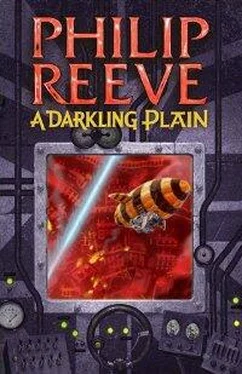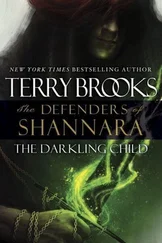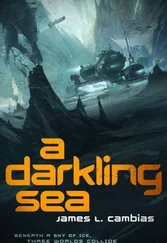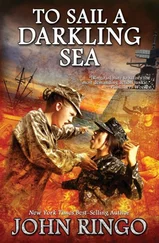Tom and Wren joined in, explaining how Theo had flown with them for a time aboard the Jenny and visited the Traction City of Kom Ombo without showing any desire to murder anyone. And slowly, grudgingly, people started to admit that Theo might not be an agent of the Storm after all; only a lost stranger who should be offered hospitality.
The injured were treated, the lookouts redoubled, the lightning guns recharged. Chudleigh Pomeroy, who looked badly shaken but insisted that he was quite all right, asked Theo a lot of questions about how the war was going, very few of which Theo could answer, because Chudleigh Pomeroy had a Historian’s notion of battles, all about tactics and the plans and decisions of generals, none of which Theo had really noticed while he was fleeing through the mud.
In the late afternoon, when the slanting sunlight shone right into Crouch End and through the windows of their little shack, Tom and Wren were finally able to get Theo to themselves. Over cake and nettle tea that Wren scrounged from the kitchens, they told him the story of their adventures and listened to his own. And it was there that Tom first learned of Theo’s meeting with Hester; of how she had rescued him in the sand sea, and of what had followed, right up to the moment when she had boarded that corvette with Lady Naga.
Wren took her father’s hand as they listened. There were tears in his eyes. But all he said was, “Where is Hester now?”
Theo shook his head. “It was such chaos on the line. I think her ship got away safely. But wherever she is, she’ll be all right. I’ve never met anyone as brave or as tough as her. And Mr. Grike will look after her…”
“Grike,” said Tom, and shook his head. “So it was him you two met on Cloud 9. I thought I’d finished him forever on the Black Island. I hate to think of the old brute up and about again.”
“I wouldn’t be here now if he wasn’t, Mr. Natsworthy,” said Theo. “He’s changed since Oenone re-Resurrected him.”
Tom didn’t doubt what Theo said, but he still couldn’t shake off his memories of the old Grike, vicious and insane, who had hunted him through the Rustwater Marshes twenty years before. And now Grike and Hester were together again, just as they’d been when she was a young girl. A rare, bitter feeling filled him. He was jealous of the ancient Stalker.
In the evening, when the sun had gone down into the haze of the west and the sky above the debris fields was turning lilac, Wren took Theo up to the Womb so that he could see for himself what the Londoners were doing there. She felt nervous, for although he was a moderate, civilized sort of Anti-Tractionist, he was still an Anti-Tractionist, and had been brought up to hate and fear all moving cities. But New London had become so important to her that she had to show him; she had to know what he felt about it.
When they reached the hangar, he stood looking up for a long time at the new city, while Wren nervously explained how it had come to be, and what those funny mirror things were supposed to do. She couldn’t tell what he thought, or whether he was even listening.
“But it hasn’t got any wheels,” he said at last.
“I told you, it doesn’t need any,” said Wren. “So you needn’t be so old-fashioned about it; it isn’t going to churn up your precious green earth or squash any flowers or bunnies. It’s barely a Traction City at all. Think of it as a very large, low-flying airship.”
They walked through the shadows under New London. Above their heads Engineers clambered about like spiders on the city’s belly, making adjustments and repairs. All around them, on the hangar floor, kegs of water and crates of salted meat were waiting to be loaded aboard, along with coops filled with clucking poultry, and stacks of tinned food unearthed by salvage teams from lost groceries and storerooms deep in the debris fields. Even the shacks where the people of London had lived for so long were being dismantled and loaded on handcarts and scrap-metal sledges for transport to the holds of the new suburb. As Wren led Theo outside, they met a whole line of them coming up the track from Crouch End, filling the twilight with dust and rust flakes. From the northern end of the Womb came the voices of Len Peabody and his mates, busy clearing wreckage from in front of the hangar entrance and setting the demolition charges that would blast the doors off when the time came for New London to depart.
“So what do you think?” asked Wren, worried by Theo’s silence. She drew him off the track into a narrow cleft of the wreckage where apple trees grew. She thought a Mossie might feel more at ease there, amid the gentle whisper of the leaves. She thought he would be heartened by the way nature was reclaiming the ruins of London. “Tell me,” she said.
“You are set on going with them?” Theo asked.
“Yes,” said Wren. “Dad wants to. I want to too. I want to stand aboard New London and feel it moving, racing off to new places…”
“Hunting?”
“Trading, the way Anchorage used to.”
“Bigger cities will hunt you.”
“They won’t catch us.”
A bird fluttered in the undergrowth. Only a blackbird, but it made them both flinch, and they moved closer together.
“The thing is,” he said, “I didn’t expect any of this. I thought you were just exploring here.”
“That’s Pennyroyal’s fault,” said Wren, who always talked too much when she felt nervous. “If he hadn’t let my letter get all soggy, you’d have known about Wolf’s theory—”
“Hush…” Theo touched his finger to her lips to quiet her. He said, “I thought you’d be in danger now the barbarians are driving east again. I hoped I might find you and take you and your father home with me somehow, to Zagwa.”
Oh, bother! thought Wren, because she had been pretty sure that he was about to kiss her again, and now she saw it wasn’t going to work. He was a Mossie, and she was a city girl. He was never going to approve of New London. And then she thought, Well, what does it matter? The way things were going, they might both be eaten by Harrowbarrow or pecked to bits by Stalker-birds before tomorrow night.
So she kissed him instead.
A single electronic eye focused for an instant on Wren and Theo, zooming in on the smudge of their body heat amid the cold sprawl of the wreck. A computer brain considered them for a fraction of a fraction of a second, then forgot them.
ODIN swung its gaze westward, pulling back, struggling to make sense of the incomprehensible world it had awoken to. Where were the sprawling cities of its masters, New York and San Angeles, that it had been put into orbit to defend? Where had the new mountain ranges come from? All those new seas? And what were those huge vehicles creeping across Europe, trailing their long sooty smears of exhaust smoke behind them?
The old weapon clung to the one familiar thing that this changed world could offer it: the stream of coded data rising like a silken thread from somewhere in the uplands of central Asia.
Chapter 38
The million Voices of the Wind
The cities’ war was going well. Panzerstadt Winterthur had been lost and Darmstadt and the Dortmund Conurbation were bogged down in the Rustwater somewhere, but the rest had found resistance surprisingly light. Up in the smoky skies their flying machines wheeled and swerved, harrying the withdrawing schools of Green Storm airships, while their own ships, airborne gun platforms hung from armored gasbags, lured flocks of Stalker-birds in close and hammered them into tornadoes of slime and feathers.
When it was quite clear that the Storm’s armies had been shattered, Adlai Browne decided that the time had come for Manchester to do its bit. Within a few weeks the good old days of Municipal Darwinism would return, and he meant to see to it that Manchester was at the top of the food chain when they did. His city gathered a guard of harvester suburbs around it and rolled eastward with its jaws open, filling its gut with the rubble of watchtowers and fortresses, barns and farms and wind turbines.
Читать дальше












